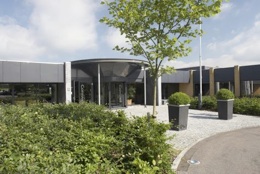LINGCORP FINAL WORKSHOP
2015
Programme
(The discussion material may be accessed here: Lingcorp seminar papers.)
Sunday 19.00
19.00 Dinner
Monday 09.00-17.15
09.00-10-15
Hartmut Haberland: The LINGCORP project
Sonja Barfod: Adaptation strategies in inter-Scandinavian interaction
10.15 Coffee break
10.45-12.45
Janus Mortensen and Hartmut Haberland: Transient multi-lingual communities
Spencer Hazel: Event Horisonten – Language and interaction in the collaborative creative processes of an international theatre company
12.45 Lunch
13.45 Dorte Lønsmann: Internationalization through English: Language socialization and norm negotiation in a multilingual workplace
14.45 Coffee break
15.15-17.15
Spencer Hazel: Data session
Carsten Levisen: Expensive English: A postcolonial semantic approach to language ideology
18.30 Dinner
Tuesday 09.00-15.30
09.00-11.00
Dorte Lønsmann and Janus Mortensen: Why this language policy now? A case study from a multilingual company
Hartmut Haberland and Ole Nedergaard Thomsen: Motivations for learning a foreign language (Haberland_Nedergaard)
11.00 Coffee break
11.30 Dorte Lønsmann and Kamilla Kraft: Language in blue-collar workplaces
12.30 Lunch
13.30-15.15 Final discussion
Hartmut Haberland and Frans Gregersen: 3 years and 2 days later: What have we learnt?
Janus Mortensen: Where do we go from here?
Spencer Hazel, Meredith Marra, and Mie Femøe: How do we communicate our results to the outside world?
15.15 Coffee and goodbye
Lingcorp Final Workshop, November 29-December 1, 2015

The LINGCORP project’s Closing Seminar was held at the Comwell Hotel Roskilde, November 29 – December 1, 2015.

“People use the eloquence and idioms of diverse languages in conversing back and forth. Words of different languages have become common property known to each nationality, and mutual faith unites those who are ignorant of their descent… He Who was born a stranger is now as one born here; he who was an alien has become a native” (Fulcher of Chartres, 1124 )

The LingCorp (Language and Interaction in the Globalized Corporation) research project investigates the challenges many corporations experience today as a consequence of the linguistic and cultural diversity present in their staff structures. Research has shown that this kind of diversity poses several challenges to the individual employees as well as to companies, and that these challenges may encumber social integration between co-workers. The aim of LingCorp is to identify these challenges, while working from the notion that linguistic and cultural diversity are a resource. The researchers will determine linguistic practices and language ideologies (attitudes to languages, multilingualism, and integration) in order to find out what happens when people with different linguistic and cultural backgrounds meet and interact in a work-situation. The project provides a unique insight into the potentials and barriers due to linguistic and cultural diversity in Danish international corporations.
The LingCorp project has now entered its final year (ends ultimo March 2016), and we have had our final seminar, which took place on Monday 30 November – Tuesday 1 December 2015.
The idea was that about 20 to 25 people – invited guests as well as the project team – come together for two days to discuss the project’s results.
The project team reported the results, and we got very valuable feedback from the other participants.
The seminar was organized into 5 thematic sessions, each centered around the research of one LingCorp team member. The team member concerned delivered a presentation of his or her research results, and selected invited participants had been assigned the role of ‘prepared’ discussant. They had read relevant papers of the team member beforehand. The rest of the participants did not have this responsibility but were invited to function as ’unresponsible’ discussants. However, all participants were invited to read the relevant material so as to get a highly qualified discussion. But we did not expect our guests to give papers.
To give you an atmosphere of the workshop, have a look some snapshots!


